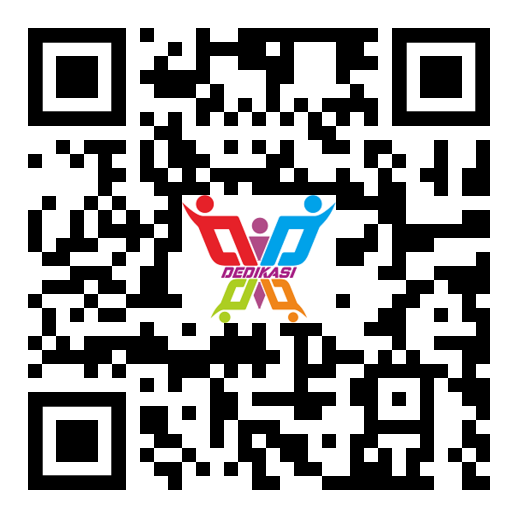Desain dan Pemanfaatan Media Pembelajaran Flash Card dengan Canva untuk Disabilitas
Abstract
Keywords
Full Text:
PDFReferences
Aspiranti, K. B., Dula, M. E., Ebner, S., & Hilton-Prillhart, A. (2023). Increasing sight-phrase reading with an ipad intervention for two students with intellectual disability. Journal of Intellectual Disabilities, 27(2), 451-465.
Cabero‐Almenara, J., Guillén‐Gámez, F. D., Ruiz‐Palmero, J., & Palacios‐Rodríguez, A. (2022). Teachers' digital competence to assist students with functional diversity: Identification of factors through logistic regression methods. British Journal of Educational Technology, 53(1), 41-57.
Ch, D. B., & Carolina San Lucas, S. (2022). Gamification in the teaching of prevention measures for covid-19. 2022 IEEE Global Engineering Education Conference (EDUCON),
Dhermawati, A., & Windiarti, A. (2019). Teachers' strategies in elt for students with disabilities. International Journal of Scientific & Technology Research, 8(10), 3060-3063.
Dinmore, S. (2019). Beyond lecture capture: Creating digital video content for online learning–a case study. Journal of University Teaching & Learning Practice, 16(1), 7.
Hall-Mills, S. S., & Marante, L. M. (2023). Teaching expository text management and proficiency skills for comprehension for students with language/learning disabilities. Learning Disability Quarterly, 07319487221145689.
Hennessy, C. M., & Smith, C. F. (2020). Digital and social media in anatomy education. Biomedical Visualisation: Volume 8, 109-122.
Howell, B. F., Jackson, A. R., & Morgan, A. P. (2022). Improving the education experience in a design history course using canva, instagram and linkedin. DS 117: Proceedings of the 24th International Conference on Engineering and Product Design Education (E&PDE 2022), London South Bank University in London, UK. 8th-9th September 2022,
Kemdikbud, P. T. (2018). Diklat integrasi stem dalam implementasi kurikulum 2013. Kementerian Pendidikan dan Kebudayaan. Retrieved 10 Februari from p4tkipa.kemdikbud.go.id/berita/detail/diklat-integrasi-stem-dalam-implementasi-kurikulum-2013
Kim, M., & Han, K. (2019). Effectiveness of 360-degree virtual reality video as community simulation learning for students with severe and multiple disabilities. Korean Journal of Physical, Multiple, & Health Disabilities, 62(4), 231-256.
Knaak, T., Grünke, M., & Barwasser, A. (2021). Enhancing vocabulary recognition in english foreign language learners with and without learning disabilities: Effects of a multi component storytelling intervention approach. Learning Disabilities: A Contemporary Journal, 19(1), 69-85.
Latheef, A., Liyakath Ali, M. F., Bhardwaj, A. B., & Shukla, V. K. (2021). Structuring learning analytics through visual media and online classrooms on social cognition during covid-19 pandemic. Journal of Physics: Conference Series,
Lauricella, A. R., Herdzina, J., & Robb, M. (2020). Early childhood educators’ teaching of digital citizenship competencies. Computers & Education, 158, 103989.
Lestari, A. P., Kuboki, Y., & Hasim, F. (2022). Developing an e-flipbook on environmental education to promote digital literacy among elementary school students and teachers in rural areas in indonesia. 2022 International Conference on ICT for Smart Society (ICISS),
Ma, H., & Li, J. (2021). An innovative method for digital media education based on mobile internet technology. International Journal of Emerging Technologies in Learning (iJET), 16(13), 68-81.
Martínez-Cardama, S., & Caridad-Sebastián, M. (2019). Social media and new visual literacies: Proposal based on an innovative teaching project. Education for Information, 35(3), 337-352.
Meletiadou, E. (2022). Using educational digital storytelling to enhance multilingual students’ writing skills in higher education. IAFOR Journal of Education, 10(2), 111-130.
Mokmin, N. A. M., & Ridzua, N. N. I. B. (2022). Immersive technologies in physical education in malaysia for students with learning disabilities. IAFOR Journal of Education, 10(2), 91-110.
Plengdisakul, P., Phothisane, S., & Soodsang, N. (2021). Graphic design for children with learning disabilities based on the isaan mural painting. Academic Journal of Interdisciplinary Studies, 10(2), 149-162.
Pötzsch, H. (2019). Critical digital literacy: Technology in education beyond issues of user competence and labour-market qualifications. TripleC: Communication, Capitalism & Critique. Open Access Journal for a Global Sustainable Information Society, 17(2), 221-240.
Prasertsin, U., Lopprasert, A., & Wanprakob, S. (2020). Guidelines on the use of vocabulary flashcard applications to develop reading skills of children with learning disabilities. Kasetsart Journal of Social Sciences, 41(3), 545–550-545–550.
Rachmawati, N., Supena, A., Yarmi, G., & RudiCasmana, A. (2022). Analysis of hybrid learning for students with learning disabilities in primary schools providing inclusive education. Qualitative Report, 27(10).
Salehudin, M., Nasir, M., Hamzah, S. H., Toba, R., Hayati, N., & Safiah, I. (2021). The users' experiences in processing visual media for creative and online learning using instagram. European Journal of Educational Research, 10(4), 1669-1682.
Sánchez-López, I., Bonilla-del-Río, M., & Soares, I. O. (2021). Digital creativity to transform learning: Empowerment from a com-educational approach. Comunicar, 29(69), 113-123.
Sarasola Sanchez-Serrano, J. L., Jaén-Martínez, A., Montenegro-Rueda, M., & Fernández-Cerero, J. (2020). Impact of the information and communication technologies on students with disabilities. A systematic review 2009–2019. Sustainability, 12(20), 8603.
Sproul, J., Ledger, S., & MacCallum, J. (2021). A review of digital media guidelines for students with visual light sensitivity. International Journal of Disability, Development and Education, 68(2), 222-239.
Sunaryo, S., Kushermawati, A., & Delina, M. (2020). E-modules on problem based learning to improve students' higher order thinking skills (hots). International Journal of Innovation, Creativity and Change, 11(1), 444-457.
Wiliyanto, D., Gunarhadi, G., Anggarani, F., Yusuf, M., & Subagya, S. (2022). Development of augmented reality-based learning models for students with specific learning disabilities. Cypriot Journal of Educational Sciences, 17(8), 2915-2926.
Yaw, J., Skinner, C. H., Orsega, M. C., Parkhurst, J., Booher, J., & Chambers, K. (2012). Evaluating a computer-based sight-word reading intervention in a student with intellectual disabilities. Journal of Applied School Psychology, 28(4), 354-366.
DOI: https://doi.org/10.20961/dedikasi.v6i1.77139
Refbacks
- There are currently no refbacks.
|







3.png)



1.png)




